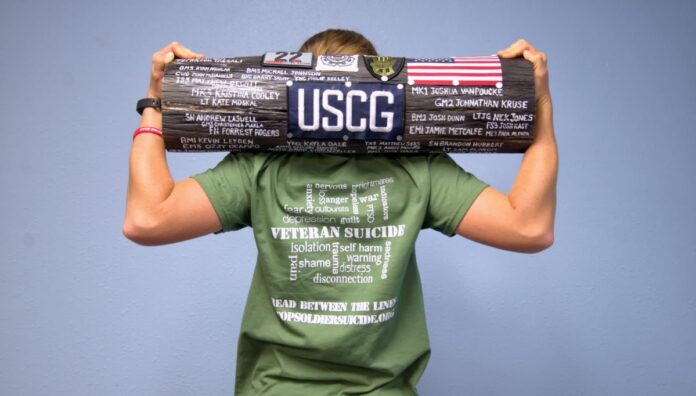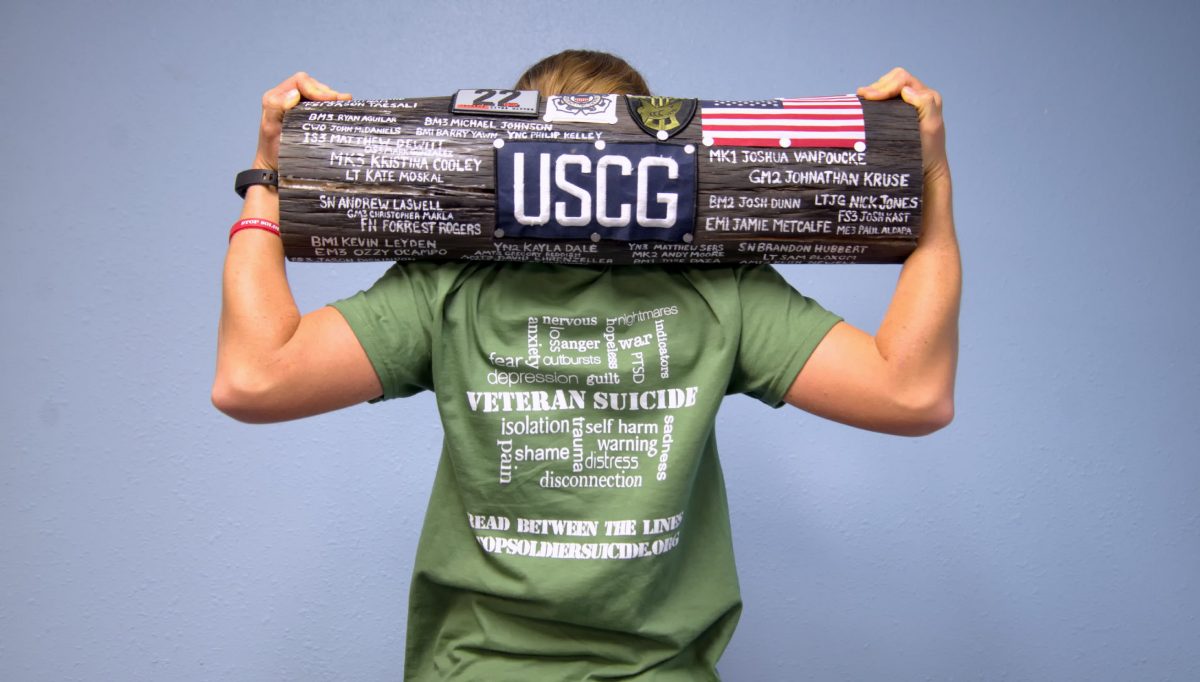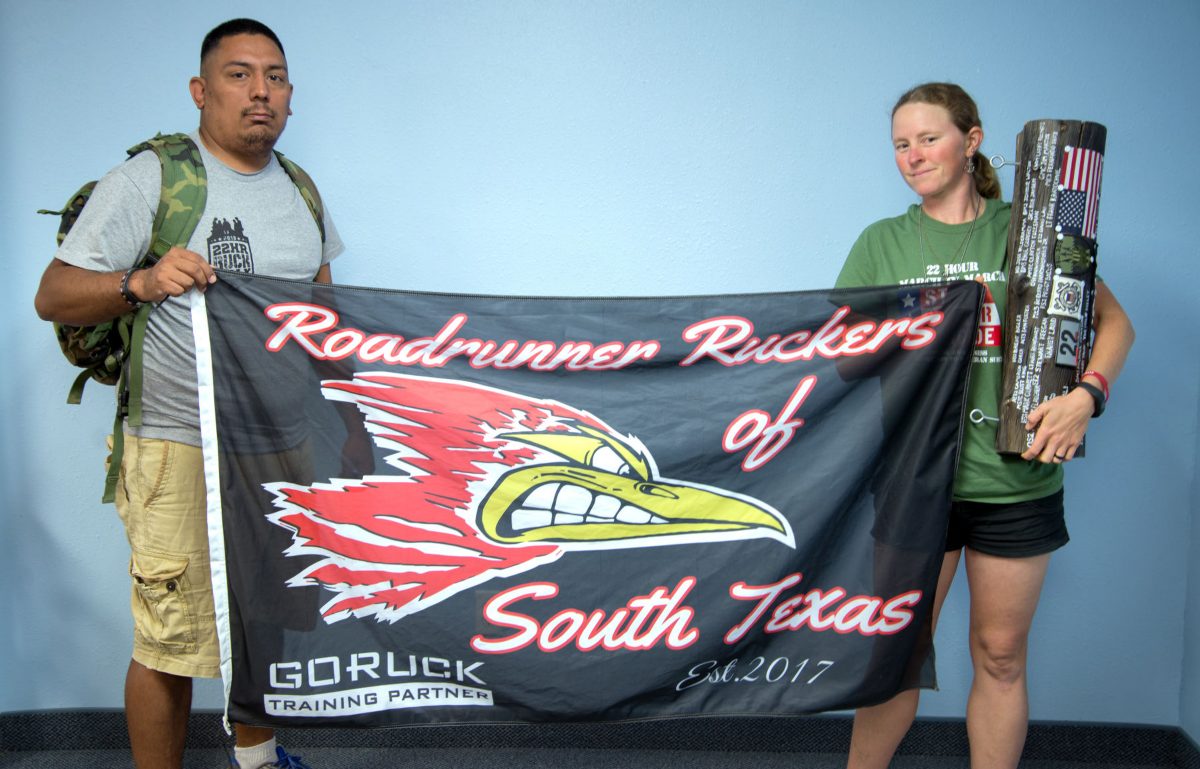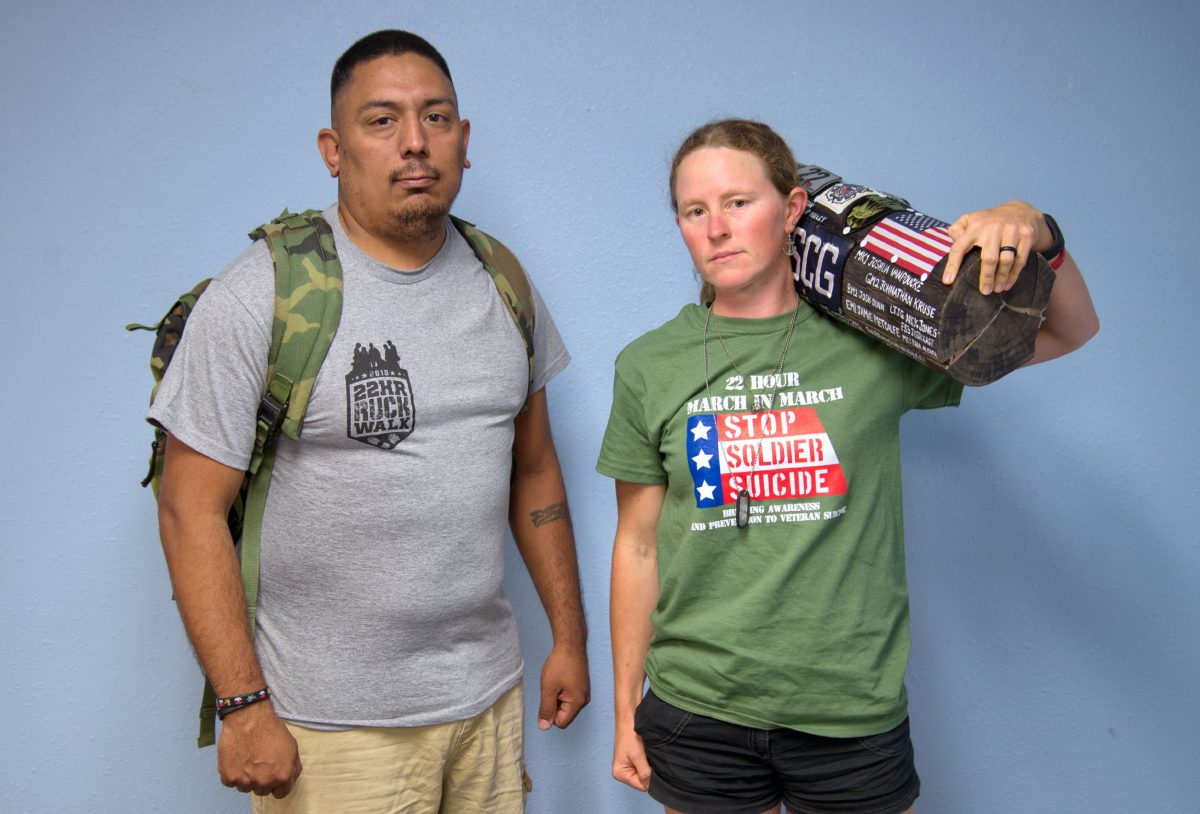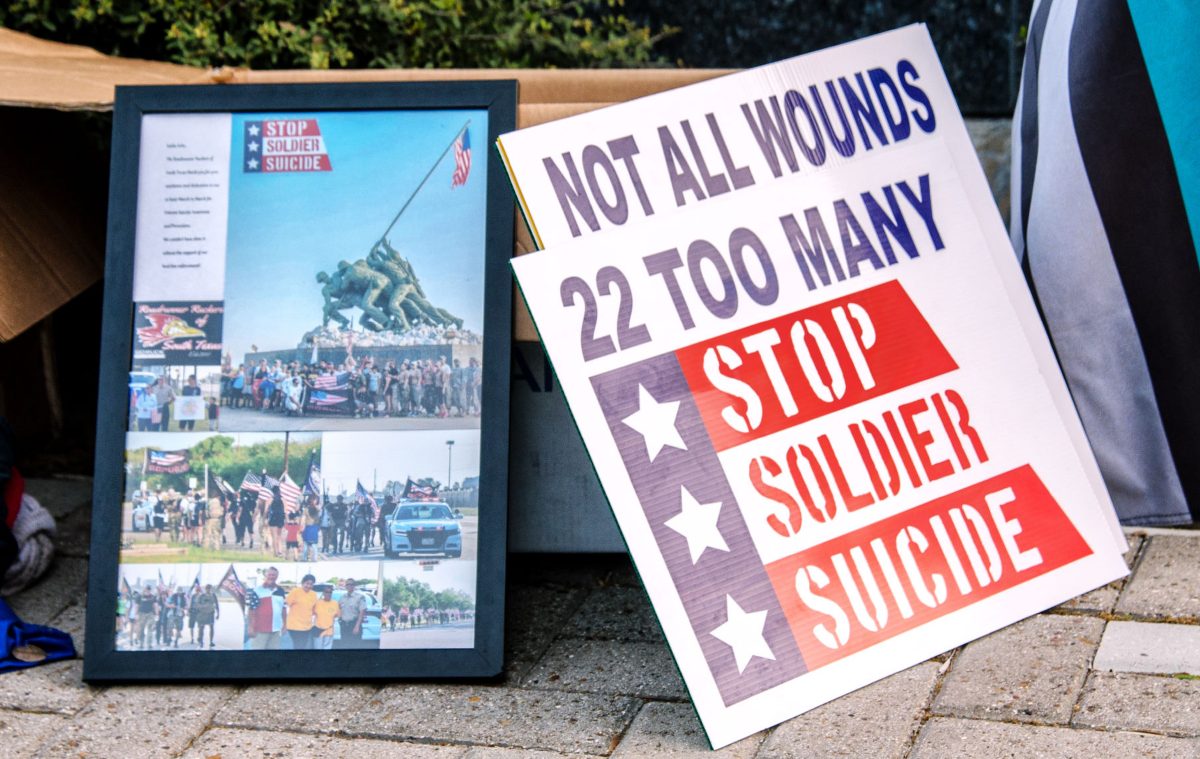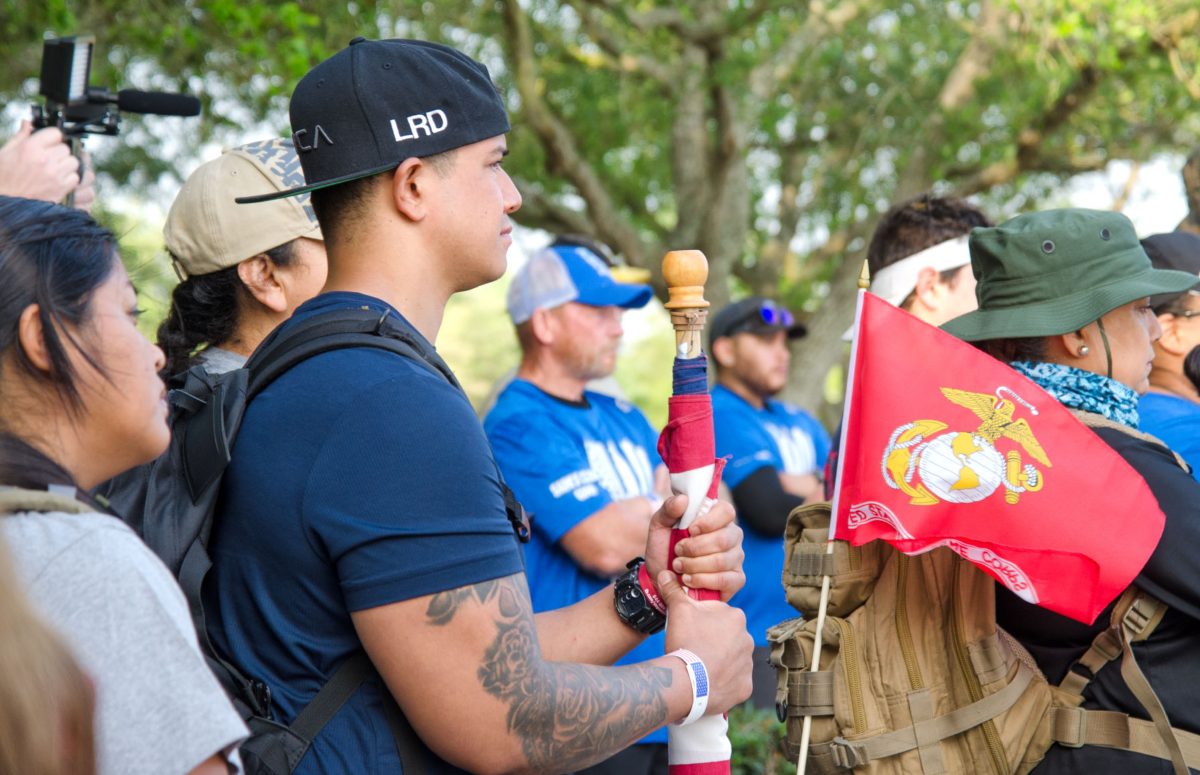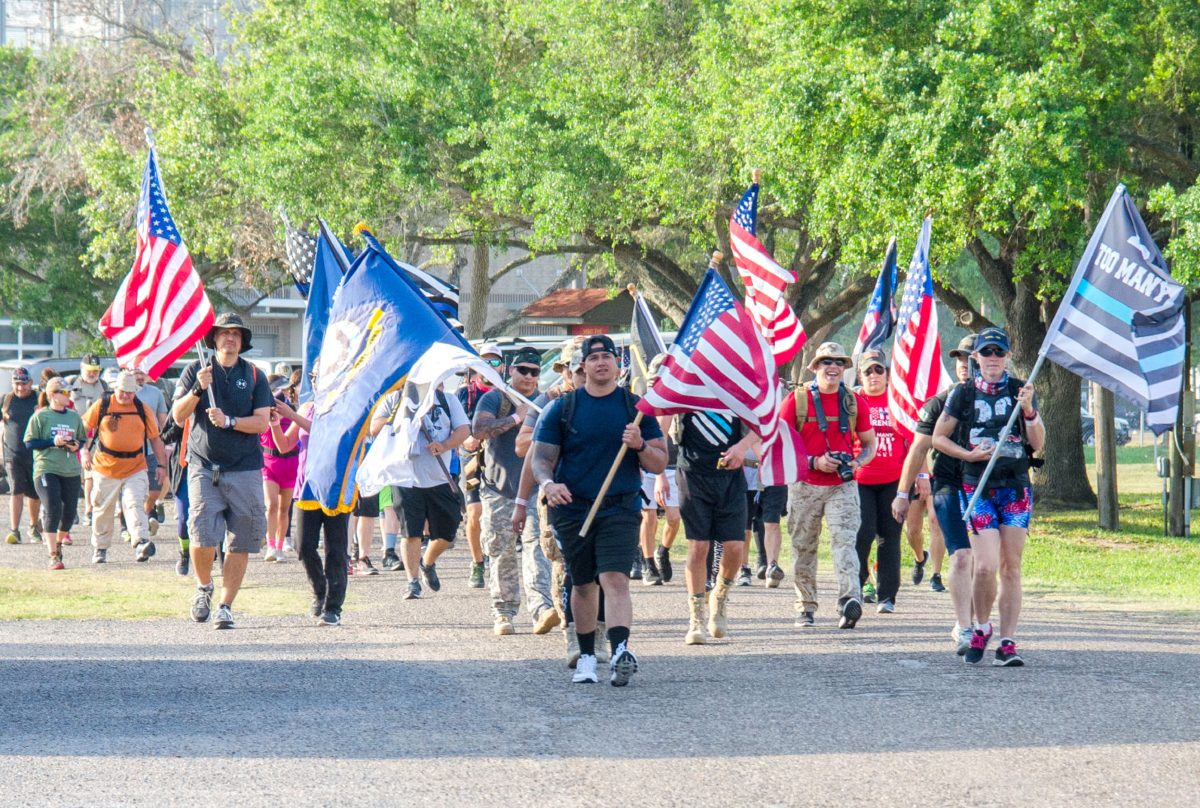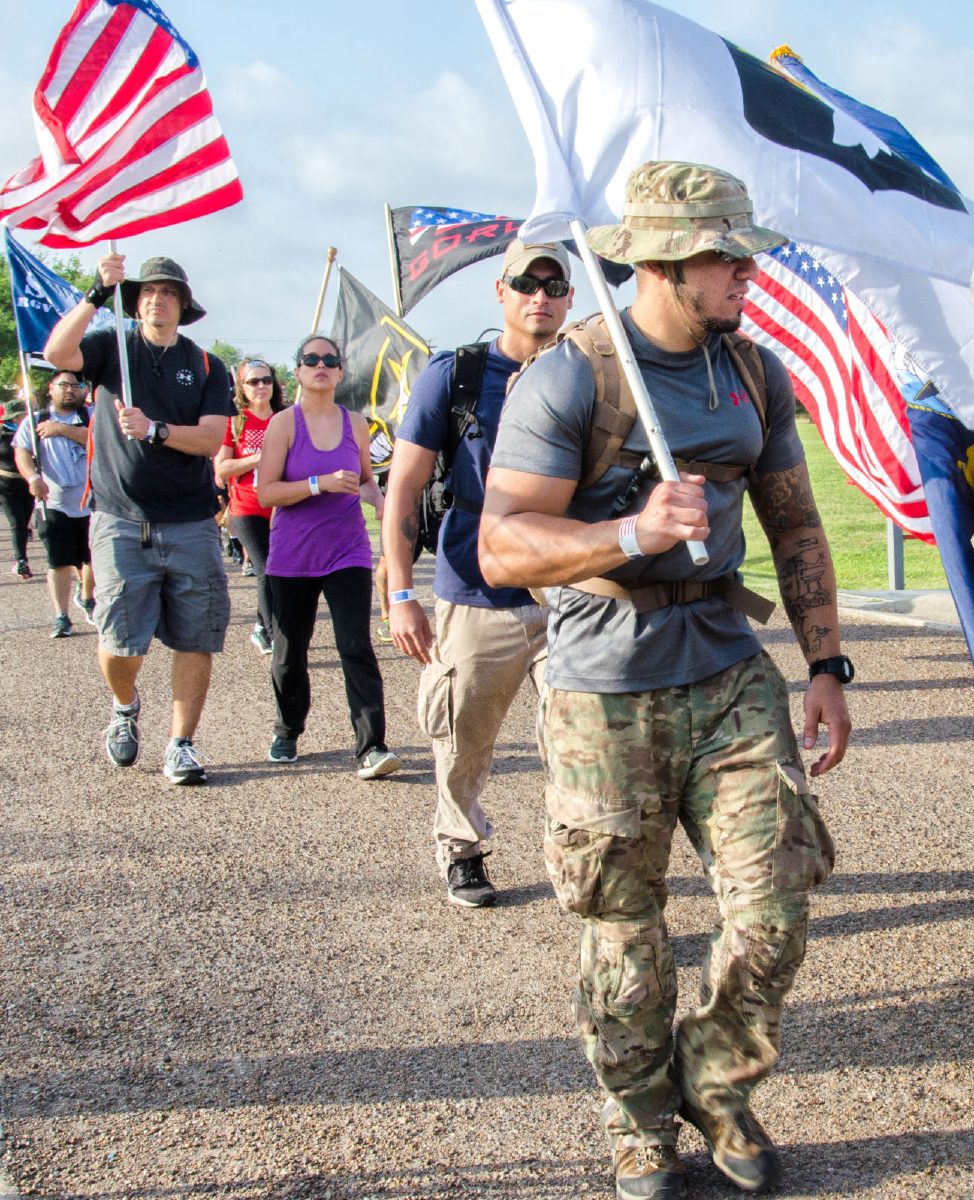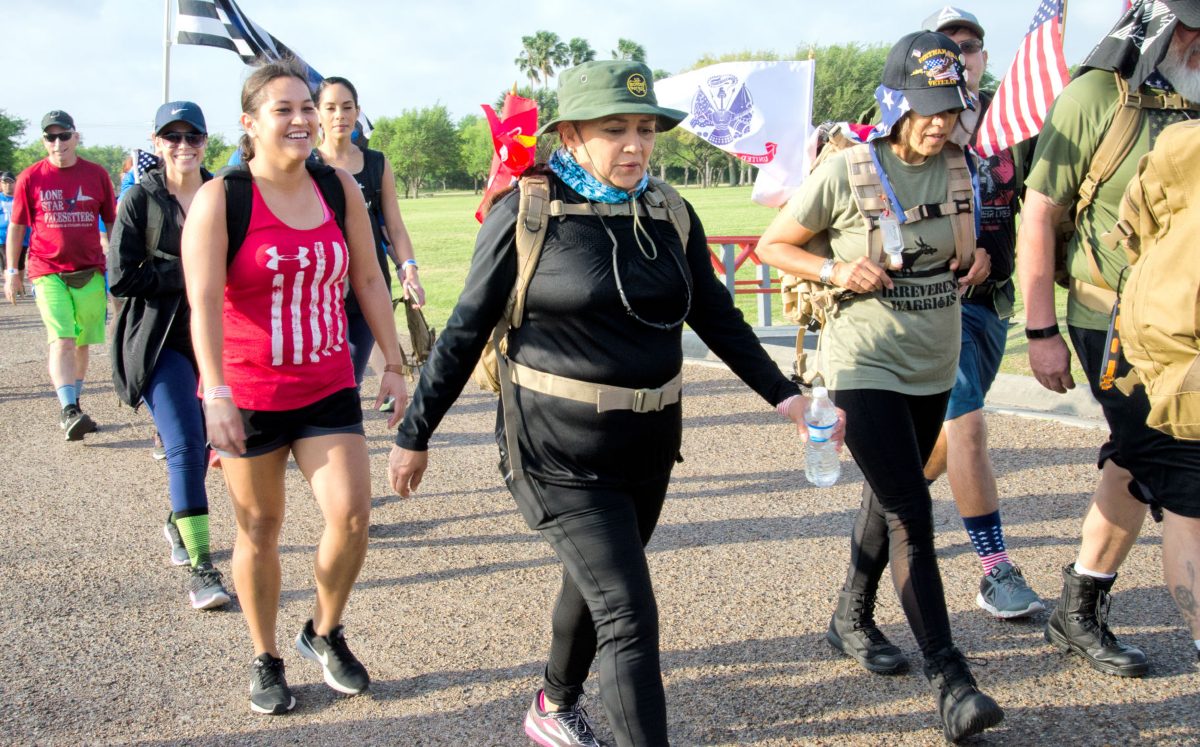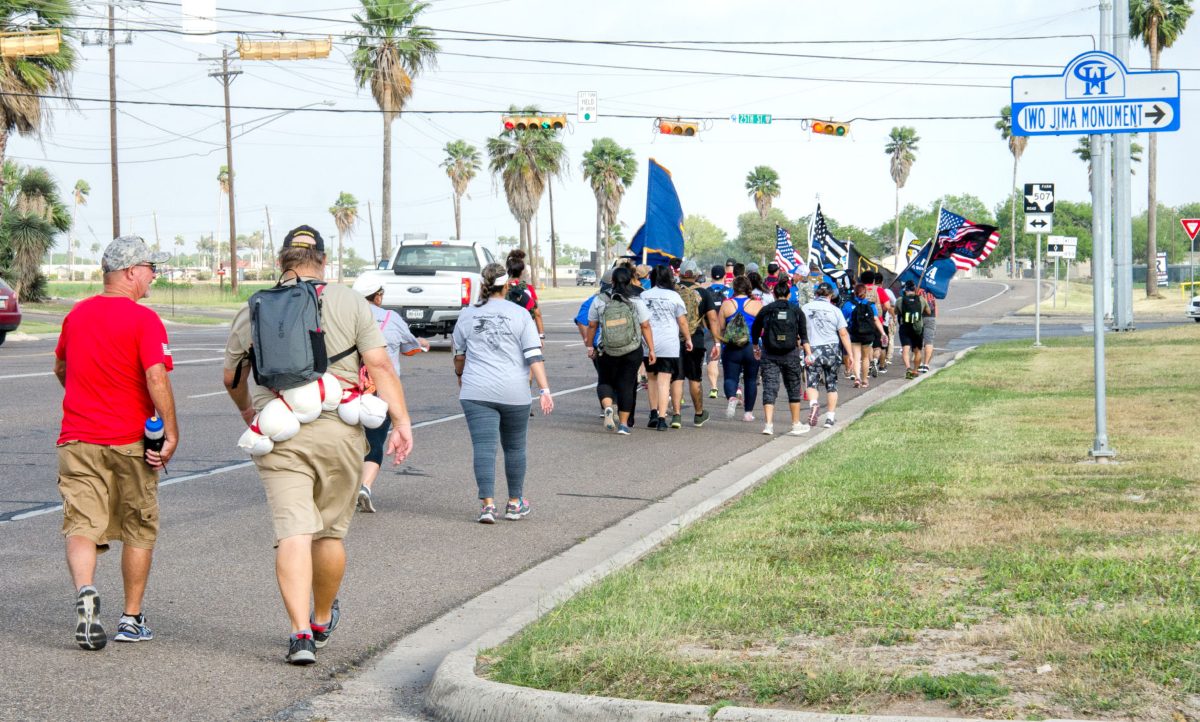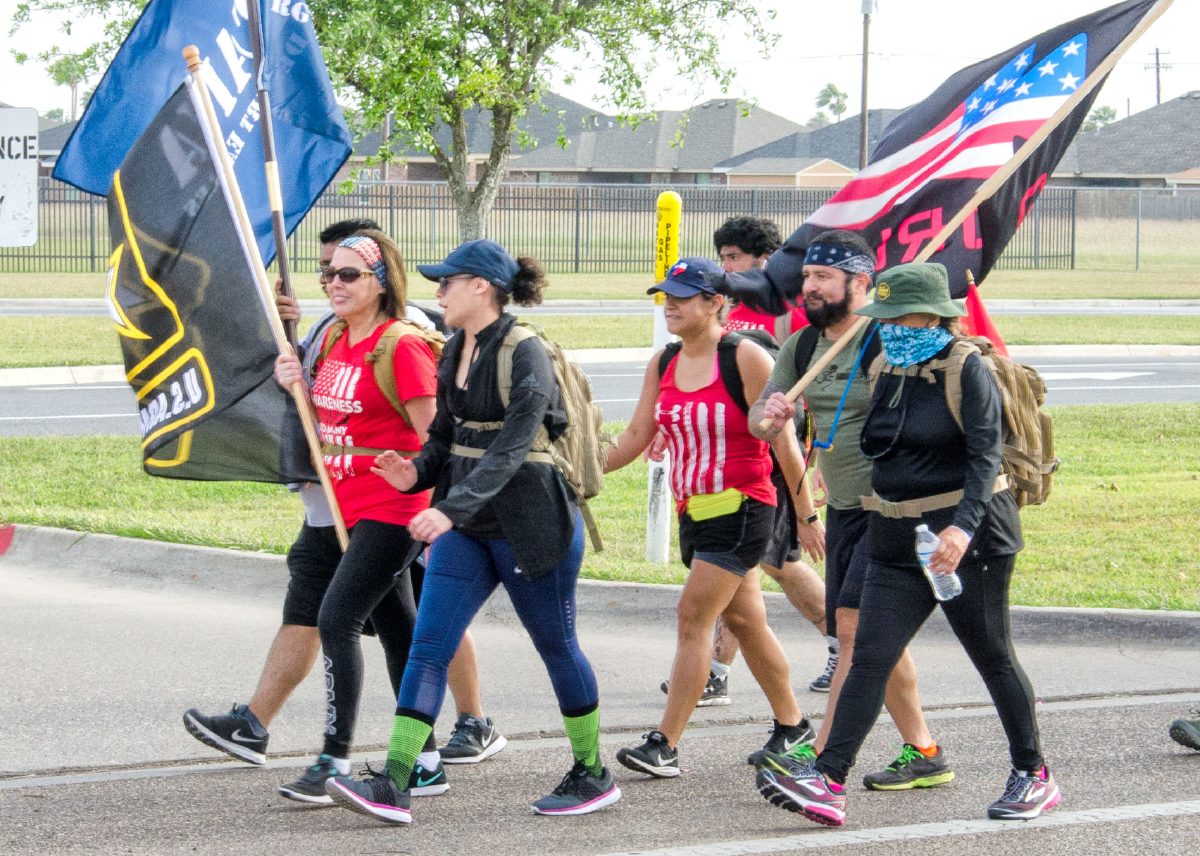HARLINGEN — The crunching of gravel can be heard underfoot as hiking boots and tennis shoes march across the trail as the sun breaks through the horizon.
Most of the people making those sounds are carrying backpacks.
Some are holding up flags.
They’re not protesters, but they are trying to bring awareness to an issue.
With one foot in front of the other, members of the Roadrunner Ruckers of South Texas are doing something important.
They’re bringing awareness to soldier suicide and creating a place for local veterans and civilians to ruck or walk with weighted bags and socialize with each other.
An internet challenge
During the summer of 2016, the 22 pushup challenge began to take over the internet.
Much like the ASL Ice Bucket Challenge, the pushup challenge involved recording someone completing pushups to raise awareness about soldier suicide.
The 22 pushups represented the number of soldiers and veterans committing suicide every day.
It was during this time when former Marine Rob Cavazos was tagged to complete the challenge.
Cavazos, who served from 2000 to 2004, knew the struggles of PTSD all too well and had fought his own personal battle with suicide.
To him, this challenge wasn’t enough.
He decided to march instead.
For 22 hours, he would make his way around Harlingen and walk in honor of the men and women who had lost their battle with PTSD.
He initially was going to complete the march alone, but little by little it sparked an interest from veterans and residents around him.
Soon it turned into an event that caught the attention of former Coast Guard servicemember Karla Thompson-Nemitz.
Nemitz was volunteering with the VA when she saw a flier for the march.
“Just barely the week before, the Coast Guard lost a female MK3 to suicide and the correlation came in and I was like I need to do this,” Nemitz said.
To her, enough was enough.
She started a fundraiser selling small wooden whales that read, “Just keep swimming” on one side and, “Stopsoldiersuicide.org” on the other.
By the time of the march, she had sold more than 100 whales and collected more than $2,000 to donate to Stop Soldier Suicide, an organization dedicated to bringing awareness and providing resources for soldiers with PTSD.
The statistics
According to the U.S. Department of Veterans Affairs, the rate at which veterans experience PTSD varies by service era.
About 11 to 20 percent of veterans who have served in the Iraq war will experience PTSD and 15 out of every 100 Vietnam veterans have struggled with the same disorder.
Veterans are at a 22 percent higher risk of suicide than their peers who have not served.
The first ruck
After the success of the first 22-hour march, Cavazos decided to keep the momentum going.
He was tired of going to bars and drinking.
He had a hard time socializing and wanted to do something positive that had impact.
“I saw the need to start a team,” Cavazos said.
A friend led him to a site called goruck.com, an organization dedicated to rucking, a form of resistance training.
The idea is to walk with a pack filled with weight between 10 and 30 pounds while in a group.
“Running sucks, but you can walk with a backpack and get a great workout,” Cavazos said.
Rucking is popular among special forces training and is widely used in military services.
“When you look in the service, rucking is something that everyone did as a unit on a mission,” Nemitz said. “It’s social exercise, group therapy.”
Cavazos received help with the logo, created a Facebook page and soon the Roadrunner Ruckers of South Texas was born.
They held the first ruck meetup on Veterans Day in 2017 with only eight members.
Comfort through exercise
The group intended to reach veterans and members of the military.
But quickly, people from all walks of life began to find a place in rucking.
One member whose son was a former Border Patrol agent and was killed, found comfort within the group.
Cavazos said there are many similar stories of family members of former servicemen and women who have sought out the group to cope.
Some rucks are dedicated to service men and women who have lost their lives.
Every Saturday morning before the break of dawn, the group gathers at a park in Harlingen to begin their journey.
People from across the Valley and sometimes as far as Corpus Christi, will walk for miles while wearing weighted backpacks.
During the rucks, members talk and socialize and sometimes meet after for breakfast and lunch.
“It’s great to socialize and do something to stay active in the community,” Cavazos said. “It’s something we strive for. It’s something we push for.”
The group attracts members from all over the community including Vietnam veterans, local law enforcement and civilians looking for a way to work out.
“Rucking is for everyone,” Nemitz said.
What next
Cavazos has a lot of ideas that he hopes to see happen in the near future and wants the ruckers to become a network of veterans that gives back to the community.
The group is an official member of the GoRuck league and he is working on turning it into a nonprofit and creating new events such as a beach ruck he has planned for April that will raise funds for the Harlingen Humane Society.
Every week, the group is growing and adding new members.
Eventually, the ruckers will add extra days to their schedule for residents wanting to join but are unable to meet up on Saturdays.
The Cause
The Veterans group aims to bring awareness to veteran suicide. In 2013, a VA study found that 22 veterans commit suicide each day.
How to get involved
WHAT: Roadrunner Ruckers of South Texas weekly ruck
WHEN: Every Saturday at 5:30 a.m.
WHERE: Harlingen Thicket Birding Center, 706 E Taft Ave, Harlingen
For more information or to join in on the rucking visit their Facebook page at the Roadrunner Ruckers of South Texas
How to ruck
• Grab a bag with thick, comfortable shoulder straps and cinch it down all the way so the ruck is higher on the back
• Bring water, preferably a hydration bladder or a Nalgene bottle
• Pack weight and make sure it is secure and close to the back

